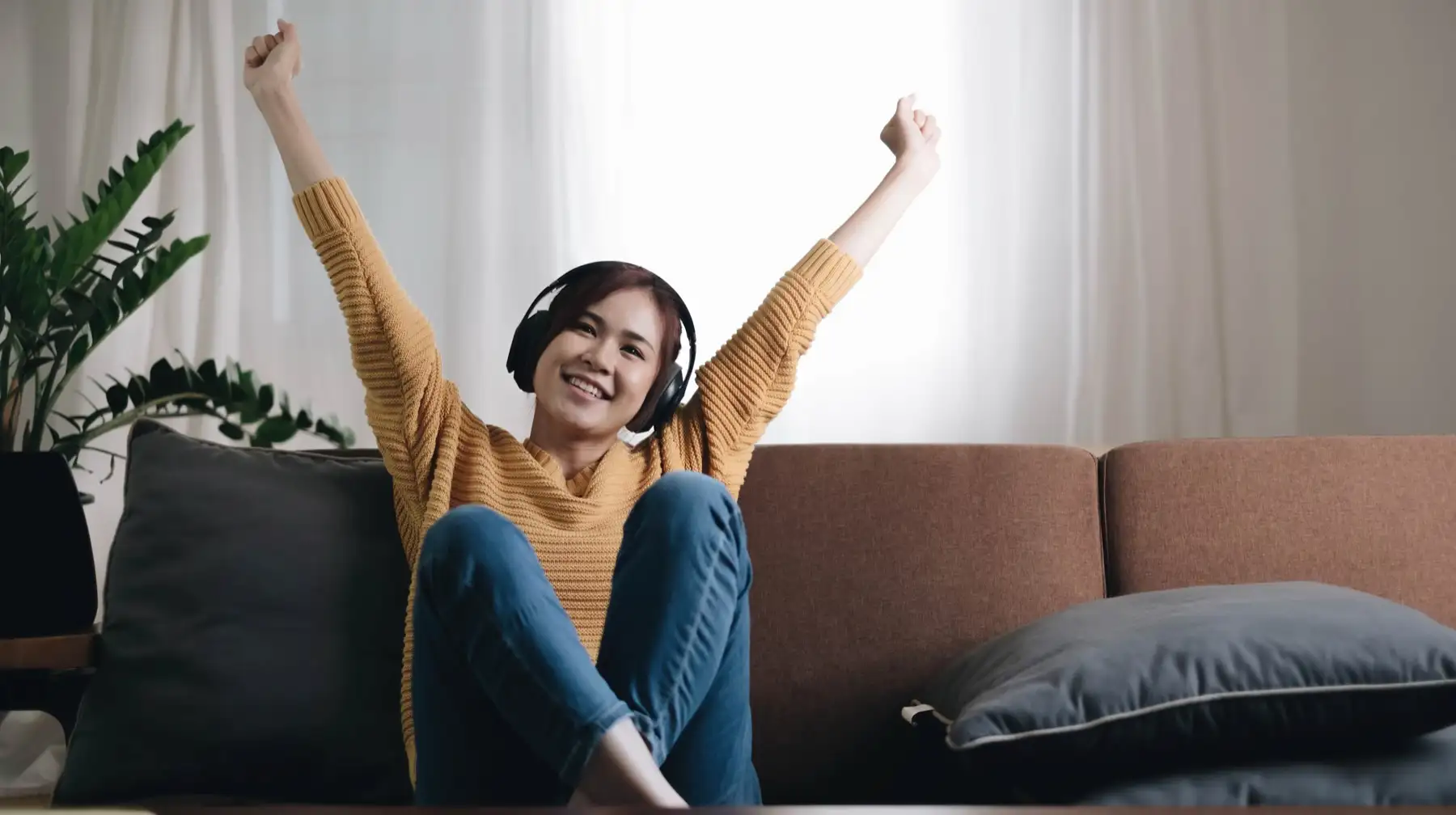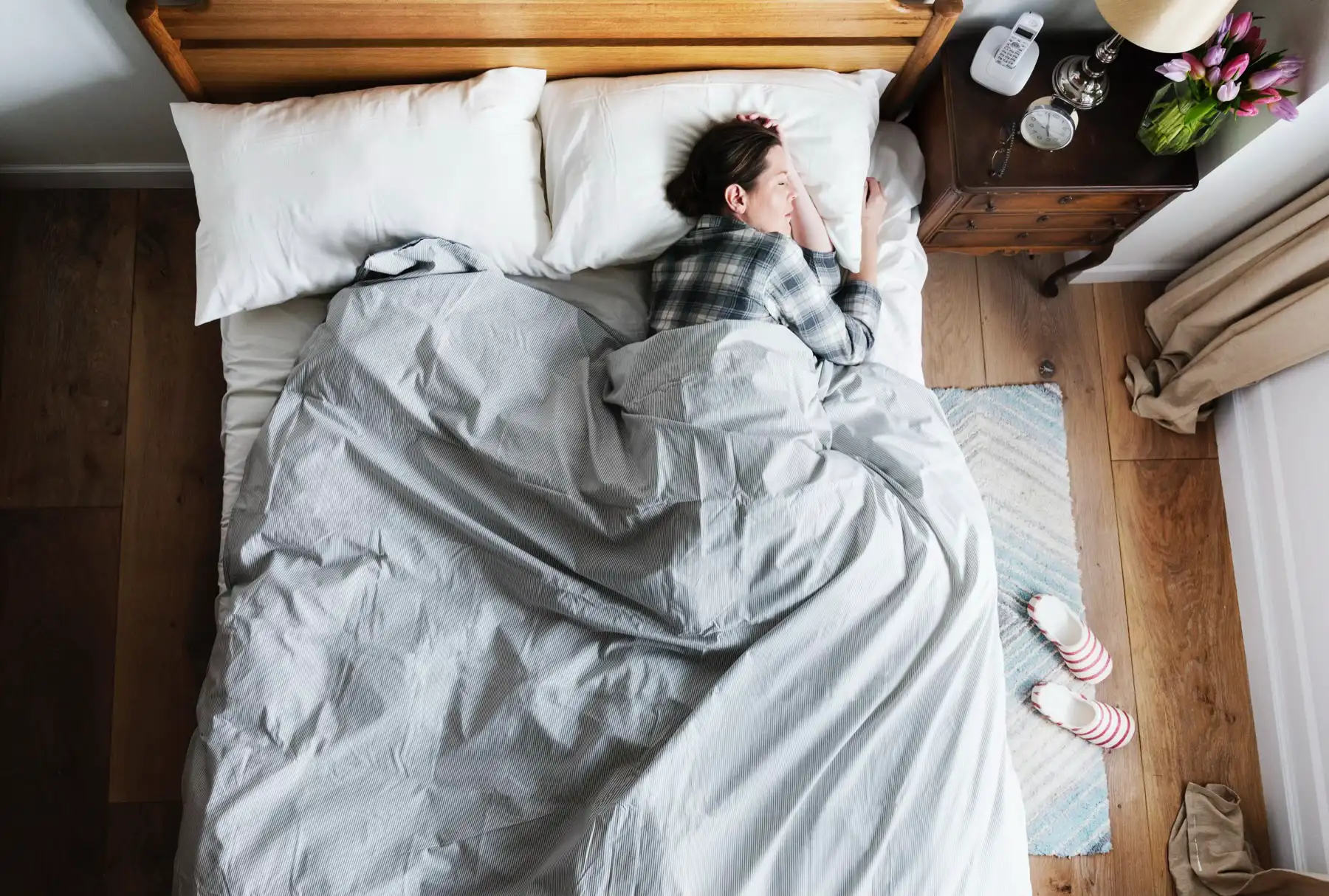Scenario: you need a good night’s sleep because you have a big event or demanding day ahead. But you’re having trouble falling and/or staying asleep. The lack of sleep causes anxiety because you know you need your shut-eye for:
- A job interview.
- A final exam.
- Taking care of a newborn baby.
- A big presentation.
- Insert the myriad of things that keep us awake at night.
The more you worry about not sleeping, the more awake and anxious you become, and the resulting anxiety perpetuates more insomnia.
I’ve been there. Several years ago, I had an important job interview, and I couldn’t stop ruminating about the questions I was sure they’d ask and how I could best answer them. I didn’t sleep. I tried counting backward from one hundred, clearing my mind, and counting my breaths. I got up and paced. I opened my laptop (a bad idea!). Before I knew it, Sunrise was only an hour away.
Realizing I was going to be exhausted and not as “on” as I needed to be just caused me to toss and turn even more. The following day I was weary and worn out, so I pounded down the coffee to clear the cobwebs and help me wake up—big mistake. My anxiety went through the roof! My cortisol levels shot up as my heart raced, my palms sweated, and my mouth turned to cotton. It was awful.
After the interview, which flew by and felt like an hour of white noise, I was exhausted because the anxiety due to lack of sleep generated even more anxiety, thinking about the interview and obsessing over what I could have done differently. Due to the escalating anxiety, I didn’t sleep for a week until I heard back about whether or not I got the job.
Scientists have found that sleep deprivation and insomnia increase the risk of developing anxiety disorders and may play a key role in activating brain regions that contribute to excessive worrying. It triggers the exact mechanisms that make us sensitive to anxiety in areas of the brain that support emotional processing, regulation, and the ability to stay calm.
Incessant poor sleep leads to anticipatory anxiety about falling asleep in the future, leading to further trouble sleeping and insufficient quality sleep. And 70 to 80 percent of people with clinical anxiety have trouble falling or staying asleep.
What do most of us do? We caffeinate. What does caffeine do to the nervous system? Like stress, caffeine increases your heart rate, blood pressure, and cortisol (stress hormone) levels while decreasing the production of the feel-good chemical serotonin in the body.
So if you want to get a good night’s sleep and prevent or reduce your anxiety, you need to cut out the coffee! Research shows that caffeine consumption in people with panic disorder raises the risk of a panic attack and increases anxiety levels.
Eventually, you can’t think straight, so you trudge through your day like a zombie, sensitive to everyone and everything around you. Chronic insomnia and anxiety prevent you from functioning optimally and can contribute to many preventable diseases like heart disease, obesity, and immune disorders.
One strategy you can try when you are trying to fall back to sleep is a “mind dump.” Keep a pad and pen next to your bed (not a laptop or tablet because the blue light will fool your brain into thinking it’s daytime and make insomnia worse). When you can’t sleep, don’t stay in bed. Sit up or get up and write without picking up your hand and editing. Allow everything in your head to spill onto the paper. Often this will allow you to go to sleep and get back to whatever is on your mind tomorrow, if necessary.
Another helpful practice at bedtime is to engage in a relaxing activity (reading, music, or other rituals before bed).
Avoid stress, especially right before bed. Avoid checking work email, watching violent movies, or reading violent or exciting stories, and avoid arguments with family before going to bed. Also:
- Go to sleep and wake up the same time every day
- Turn down the lights. Ensure the room is dark, or use a sleep mask.
- Remove exposure to all screens as far in advance as possible before bed but ideally, 1-2 hours or more before laying down to initiate sleep.
- Get rid of anything in the bedroom that might distract from sleep, such as noises, lights, pets, uncomfortable sheets, warm temperatures, etc.,
- Ensure sleeping in a quiet room free from distraction and or use ear plugs.
- Set the temperature to avoid heat; people sleep better if the temperature is on the cool side. Ensure the temperature in the room is sufficient.
- Make sure the bed, pillows, sheets, and blanket are comfortable. Consider changing them if they are not making your bed comfy.
- Turn the clock face out so you don’t see the numbers, as that can cause anxiety when trying to fall asleep.




